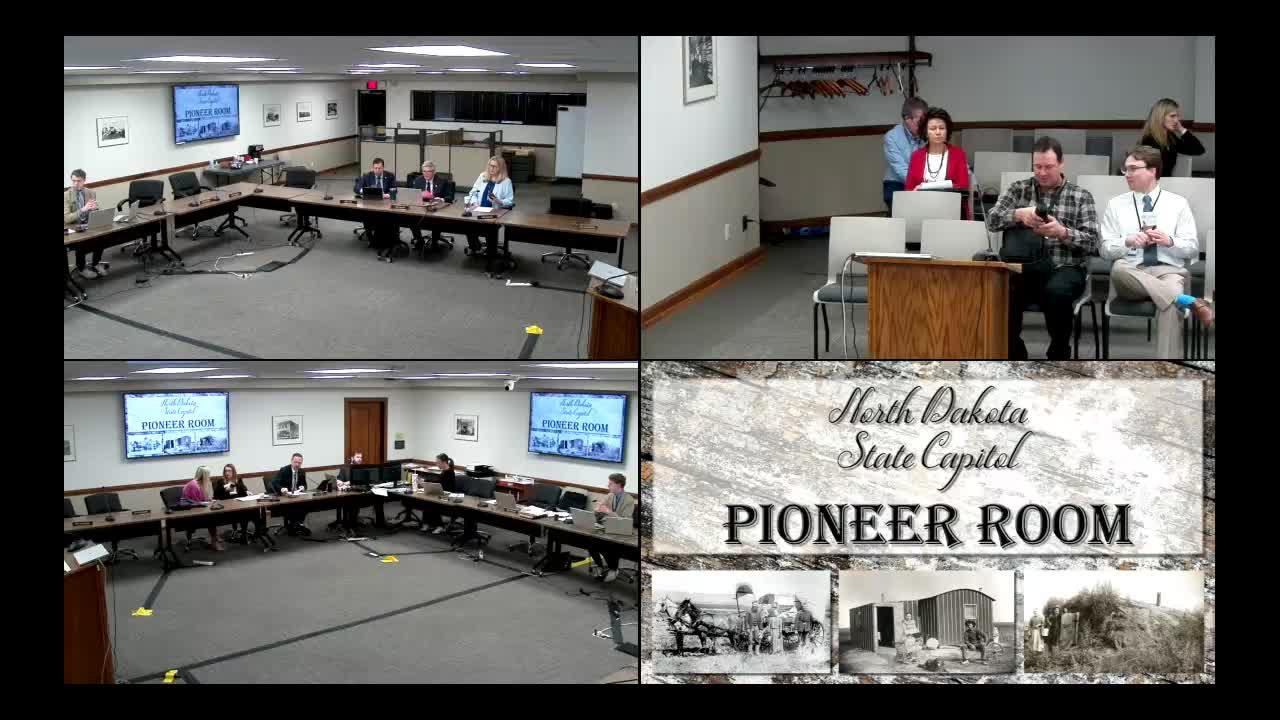Conference committee deadlocked over effective date for term-limits bill
Get AI-powered insights, summaries, and transcripts
Subscribe
Summary
Members of the House-Senate conference committee on House Bill 1300 debated whether the term-limits amendment should apply from the November 2022 election date or from its stated constitutional effective date of Jan. 1, 2023; no change or formal action was reached.
Chairman Koppelman, meeting as chair of the House-Senate conference committee on House Bill 1300, opened the session Tuesday and asked the clerk to take the role; a quorum was declared.
The panel spent the hearing debating a single central question: whether the legislative term-limits constitutional amendment should be applied to elections held Nov. 8, 2022, or should start on the amendment’s written effective date of Jan. 1, 2023. The House delegation urged treating the Nov. election as the operative moment; the Senate delegation insisted the amendment’s plain language makes Jan. 1 the effective date. The committee did not adopt new language or take a final vote.
“The date that we picked was simply a logical date,” Chairman Koppelman said, describing the House position that using the Nov. 7–8 election date would honor voters’ intent because the election and the term-limits measure were on the same ballot. Koppelman said the House previously voted to concur with the Senate’s change, then reconsidered and brought the matter back to conference after concern it could produce retroactive effects on legislators elected on that ballot.
“It became effective January 1 and you just mentioned we swear in December 1. You’re not a senator or a representative on November 8,” Senator Sickler said for the Senate side, arguing the amendment’s written effective date must govern and warning that adopting an alternate election-based date would depart from the constitutional text.
Representative Van Winkle cited the amendment’s own language, saying, “this amendment shall be effective on the January immediately following approval by voters,” and urged members to follow the constitutional wording rather than substitute another date.
Committee members described the practical stakes: different date choices produce materially different limits for incumbents who were “on the bubble.” Speakers gave numerical examples showing how alternative readings could produce cumulative service windows that range from about five years and 11 months for some incumbents under a conservative reading to nearly 12 years under other interpretations. Several members said the question carries a significant risk of future litigation but differed on whether legislative clarification would reduce that risk.
No committee action to change the amendment’s effective date was agreed. Members indicated the conference will meet again to try to resolve the dispute, and the chair closed the hearing.
The committee’s discussion tracked prior House action: the House previously voted, debated and at one point killed the bill after the date change, then used a multi-vote reconsideration to bring it back to conference. Senators said they remained committed to the amendment’s plain-language effective date, while House members argued the election-day approach better reflects voter intent.
With no formal agreement, the bill remains in conference. Committee members said they expect further meetings; no timetable was set by the close of the session.
